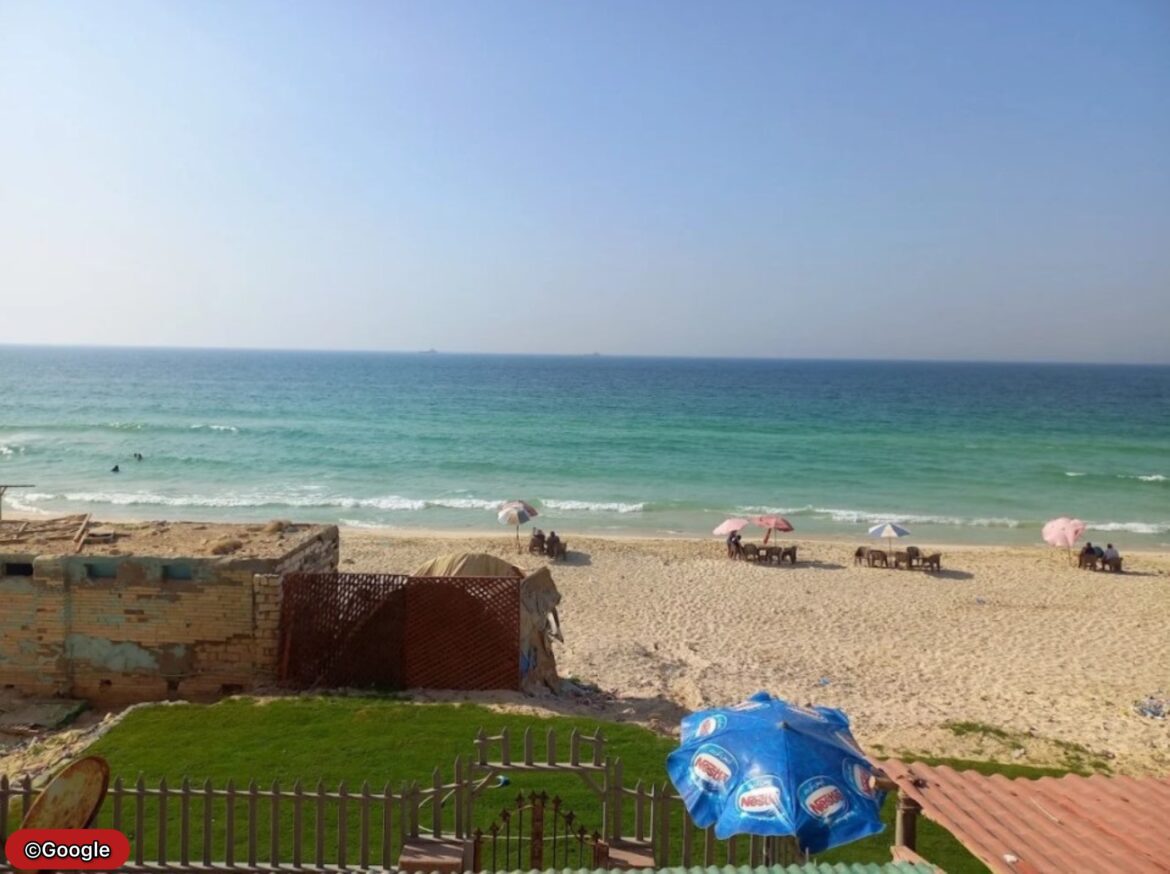Six students from an aviation hospitality academy drowned and 24 others were injured during a school trip to Abu Talat Beach in Alexandria, Egypt, on Saturday morning, prompting urgent calls for stricter beach safety measures across the country’s Mediterranean coast.
The tragedy unfolded at the popular beach in Alexandria’s Agami district when students from the air hospitality academy encountered dangerous sea conditions whilst swimming. Egypt’s Ministry of Health and Population confirmed that 16 fully equipped ambulances were immediately dispatched to the scene in a massive rescue operation.
Khaled Abdel-Ghaffar, Egypt’s Deputy Prime Minister and Minister of Health and Population, said he was “closely monitoring the emergency response and the medical care being provided” to the victims and their families.
The swift emergency response saw three students treated directly on the beach for their injuries, whilst 21 others required urgent hospital care. Thirteen students were rushed to Agami Specialised Hospital, with another eight transported to Al-Amreya General Hospital. Medical teams confirmed all injured students were being treated for drowning-related asphyxia complications.
Alexandria authorities ordered the immediate closure of Abu Talat Beach following the incident. Red warning flags now line the coastline, cautioning the public against entering the sea due to hazardous wave conditions and powerful currents that pose severe risks to swimmers.
“More has to be done to reduce irregular, unsafe movements of people along the Mediterranean waters,” officials stated, highlighting the urgent need for enhanced safety protocols at popular beach destinations.
The ministry confirmed that specialised medical teams continue treating the injured students, though specific details about how the drowning incident occurred remain under investigation. Officials are examining whether proper safety measures were in place during the academy’s organised trip.
Egypt’s Ministry of Health issued an urgent statement following the tragedy, declaring it “urges the public to adhere to safety guidelines on beaches” and emphasising that prevention remains the best way to save lives, particularly during group outings.
The incident adds to concerning drowning statistics in Egypt, which records one of the highest drowning rates in the Eastern Mediterranean region. According to World Health Organisation data, Egypt’s drowning rate reached 18.5 per 100,000 population in recent years, significantly higher than many neighbouring countries.
Maritime safety expert Dr Sarah Mitchell commented on the broader implications: “The Mediterranean coast experiences rougher sea conditions that heighten drowning risks, especially during certain weather patterns. Educational institutions must implement rigorous safety protocols for water-based activities.”
Local resident Ahmed Hassan, who frequently visits the Agami district beaches, expressed shock at the news. “These beaches can be treacherous when the currents are strong. Many people underestimate the power of the Mediterranean waters,” he said.
The tragedy has reignited debates about beach safety standards across Egypt’s extensive coastline. Tourism industry representatives acknowledge that whilst the country relies heavily on coastal tourism, safety infrastructure often struggles to keep pace with visitor numbers.
Statistical data reveals drowning incidents in Egypt typically spike during warmer months, particularly along the Mediterranean coast where sea conditions prove more challenging than calmer Red Sea waters. Children and young adults remain the most vulnerable demographic, accounting for over 80 per cent of drowning deaths regionally.
The aviation hospitality academy has yet to release an official statement regarding the incident. Parents of affected students gathered at local hospitals seeking information about their children’s conditions, with ministry officials providing regular updates on medical care.
This latest incident follows another maritime tragedy earlier this year when the Sindbad submarine sank off Hurghada, claiming six lives. That disaster, which involved mostly Russian tourists, highlighted ongoing concerns about water safety standards at Egyptian tourist destinations.
Safety advocates stress that comprehensive water safety education must become mandatory for all educational institutions organising beach excursions. “Teaching basic swimming skills and water safety awareness could prevent many of these tragedies,” noted one regional drowning prevention specialist.
The Egyptian government faces mounting pressure to implement stricter regulations for beach activities and improve emergency response capabilities along its extensive coastline. Current safety measures vary significantly between locations, with many popular beaches lacking adequate lifeguard coverage or warning systems.
International organisations monitoring Mediterranean drowning statistics note that whilst migration-related drownings receive significant attention, recreational drowning incidents amongst residents and tourists claim thousands of lives annually across the region.
As investigations continue into Saturday’s tragedy, the incident serves as a stark reminder of the Mediterranean’s dangers. The combination of unpredictable currents, varying weather conditions, and inadequate safety infrastructure creates potentially lethal conditions for unsuspecting swimmers.
The ministry’s renewed call for beach safety adherence comes as Egypt prepares for increased coastal tourism in coming months. Officials emphasise that whilst beach activities remain popular recreational options, proper supervision and safety measures prove essential for preventing future tragedies.
The families affected by this weekend’s events now face an agonising wait as medical teams work to save the injured students. The incident has cast a shadow over what should have been an educational excursion, transforming a day of learning into one of profound loss for the aviation hospitality academy community.
Egyptian authorities promise a thorough investigation into the circumstances surrounding the drownings, with findings expected to influence future safety regulations for educational trips to coastal areas. The tragedy underscores the critical need for comprehensive risk assessments before authorising student activities near water.
As Alexandria’s beaches remain under red flag warnings, the broader implications for Egypt’s approach to water safety continue to unfold. The loss of six young lives in pursuit of education serves as a devastating reminder that maritime dangers demand constant vigilance and robust preventive measures.
Follow for more updates on Britannia Daily



